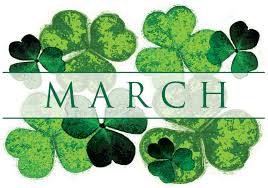中文词源
March 三月
来自拉丁语Martius mensis,即战神Mars月。比较January,May.
march 行进,齐步走,游行示威来自古法语marche,边界,界限,词源同mark,margin.引申词义向边界行进,行军,齐步走,现也用于指游行示威等。
英语词源
- march
-
march: English has three words march. The commonest is also the most recent: march ‘walk as a soldier’ [16]. Etymologically, this means virtually ‘trample down’. It comes via French marcher from Gallo-Roman *marcāre, a verb derived from late Latin marcus ‘hammer’. The month-name March [12] goes back via Old French to Latin Martius, literally the ‘month of Mars, the god of war’ (Mars also gave English martial). March ‘boundary’ [13] has now almost died out, apart from its use in the plural (‘the Marches’) as a geographical name.
It comes via Old French marche from medieval Latin marca (source also of marquis and marchioness); and marca in turn goes back through Frankish *marka to prehistoric Germanic *markō, source of English mark.
=> martial; mark, marquis - march (v.)
- "to walk with regular tread," early 15c., from Middle French marcher "to march, walk," from Old French marchier "to stride, march," originally "to trample, tread underfoot," perhaps from Frankish *markon or some other Germanic source related to obsolete Middle English march (n.) "borderland" (see march (n.2)). Or possibly from Gallo-Roman *marcare, from Latin marcus "hammer," via notion of "tramping the feet." Meaning "to cause to march" is from 1590s. Related: Marched; marching. Marching band is attested from 1852. Italian marciare, Spanish marchar are said to be from French.
- march (n.2)
- "boundary," late 13c. (in reference to the borderlands beside Wales, rendering Old English Mercia), from Old French marche "boundary, frontier," from Frankish *marka or some other Germanic source (compare Old High German marchon "to mark out, delimit," German Mark "boundary;" see mark (n.1)). Now obsolete. There was a verb in Middle English (c. 1300), "to have a common boundary," from Old French marchier "border upon, lie alongside." This is the old Germanic word for "border, boundary," but as it came to mean "borderland" in many languages new words were borrowed in the original sense (compare border(n.), bound (n.)"border, boundary"). Modern German Grenze is from Middle High German grenize (13c., replacing Old High German marcha), a loan-word from Slavic (compare Polish and Russian granica). Dutch grens, Danish groense, Swedish gräns are from German.
- March
- third month, c. 1200, from Anglo-French marche, Old French marz, from Latin Martius (mensis) "(month) of Mars," from Mars (genitive Martis). Replaced Old English hreðmonaþ, the first part of which is of uncertain meaning, perhaps from hræd "quick, nimble, ready, active, alert, prompt." For March hare, proverbial type of madness, see mad.
- march (n.1)
- "act of marching," 1580s, from march (v.) or else from Middle French marche (n.), from marcher (v.). The musical sense first attested 1570s, from notion of "rhythmic drumbeat" for marching. Transferred sense of "forward motion" is from 1620s.
权威例句
- 1. The unevenly matched armies met at Guilford on 15 March 1781.
- 1781年3月15日,力量悬殊的两支队伍在吉尔福德狭路相逢。
- 2. Police said permission for the march had not been granted.
- 警方说游行并未得到批准。
- 3. The group proceeded with a march they knew would lead to bloodshed.
- 这个团体继续示威游行,他们知道这将导致流血事件的发生。
- 4. Both were remanded on bail by Wrexham magistrates until March 24.
- 两个人都被雷克瑟姆的地方治安官批准保释,直到3月24日审判。
- 5. The change proposed last month was foreshadowed in the March Budget.
- 上个月提议的变动在3月份的预算中已经有所预兆了。

